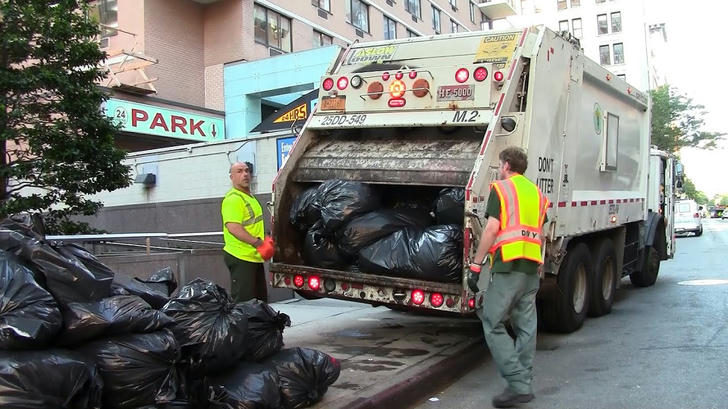How much do cleaners typically earn? How do salaries vary by region?
Introduction
Cleaners are essential workers in keeping our environments clean and safe, whether it’s in homes, offices, hospitals, or public spaces. As the demand for cleanliness and hygiene continues to grow, the need for professional cleaners also increases. But how much do cleaners typically earn, and what factors influence their income? <!-•more -->
This article explores the average salaries of cleaners in different countries, the factors that affect their pay, and real-life examples of how cleaners can maximize their earnings.

Ⅰ. Average Cleaner Salary
Here’s a summary of cleaner salaries in different countries:
United States: Cleaners earn around $29,000 per year on average, with some making up to $35,000 depending on location and experience.
Canada: Cleaners in Canada typically earn around CAD $32,000 per year, with higher wages in provinces like Alberta and British Columbia.
United Kingdom: The average salary for cleaners is between £18,000 and £22,000 per year, with experienced cleaners earning up to £25,000.
Australia: Cleaners earn about AUD $50,000 per year, with those in major cities like Sydney and Melbourne earning more.
Germany: In Germany, cleaners earn around €24,000 per year, with higher wages in large cities like Berlin or Munich.
New Zealand: Cleaners earn about NZD $42,000 annually, with slightly higher pay in cities like Auckland.
China: Cleaners can earn between ¥20,000 and ¥60,000 annually, depending on location and experience.
Ⅱ. Factors That Affect Cleaner Earnings
Several factors influence how much cleaners earn:
Experience: Like most jobs, more experience often means higher pay. A cleaner with several years on the job may earn more than someone just starting.
Location: Cleaners in big cities or wealthier areas tend to earn more due to higher living costs and demand.
Type of Cleaning: Specialized cleaners, such as those working in hospitals or industrial sites, usually earn more than those working in homes or small offices.
Full-Time vs. Part-Time: Full-time cleaners typically earn more overall compared to part-time workers, who might work fewer hours or take on additional jobs to make up the difference.
Employer: Cleaners working for private companies or government agencies may receive higher pay and better benefits than those working independently.
Union Membership: In some countries, cleaners who are part of a union often earn higher wages and receive better benefits, including health care and retirement plans.
Ⅲ. Additional Benefits and Compensation
In addition to their basic salary, cleaners can often receive various benefits:
Overtime Pay: Many cleaners have the opportunity to work extra hours, which can significantly boost their earnings.
Health Insurance: In some countries, employers offer health coverage, including dental and vision insurance.
Paid Time Off: Cleaners may receive paid vacation, sick leave, and holidays.
Bonuses: Some employers offer performance bonuses or holiday pay.
Uniforms and Equipment: Some employers provide allowances for uniforms and cleaning supplies.

Ⅳ. Case Examples of Cleaners
Case 1: Maria, a Residential Cleaner in the U.S.
Maria, 38, works as a residential cleaner in Los Angeles, California. She started earning $12 per hour but now makes $18 per hour after five years of experience. Maria works 40 hours a week and takes on extra weekend jobs, earning an additional $5,000 per year. Her total annual salary is $42,000, which includes overtime and bonuses from satisfied clients.
Case 2: Ahmed, a Hospital Cleaner in Canada
Ahmed, 45, works as a cleaner at a hospital in Toronto, Ontario. He earns CAD $20 per hour, which is higher than most residential cleaners because of the specialized cleaning required in hospitals. Working full-time, Ahmed makes about CAD $41,000 per year. His employer also provides health insurance and a pension plan, adding more value to his overall compensation.
Case 3: Lucy, an Office Cleaner in the UK
Lucy, 30, cleans office buildings in central London. She started working part-time, earning £9 per hour. After three years, she switched to full-time work and now earns £12 per hour. With her 40-hour workweek, Lucy makes around £25,000 per year. She also gets paid holidays and an end-of-year bonus from her cleaning company.
Ⅴ. How to Increase Earnings as a Cleaner
Here are some strategies cleaners can use to boost their income:
Gain Experience: The more experience a cleaner has, the better their chances of earning higher wages. Staying in the industry for several years can lead to higher-paying opportunities.
Specialize in High-Demand Areas: Cleaners who focus on specialized areas, such as medical facilities, industrial sites, or construction clean-up, can often command higher pay.
Work Overtime: Taking on extra shifts or working on weekends can provide a significant boost to a cleaner’s overall income.
Get Certified: Cleaners can improve their earning potential by obtaining certifications in specialized cleaning methods, such as biohazard cleaning or eco-friendly practices.
Move to a High-Paying Area: Cleaners in major cities or areas with a higher cost of living often earn more. Moving to places with a higher demand for cleaners can lead to better pay.
Start Your Own Cleaning Business: Independent cleaners can potentially earn more by setting their own rates and taking on private clients. This also offers the flexibility to work with a wide range of clients and set a personalized schedule.

Conclusion
Cleaners play a vital role in maintaining the cleanliness and safety of homes, offices, hospitals, and public spaces. While the average salary for cleaners varies by country, location, and type of cleaning, most cleaners have opportunities to increase their earnings through experience, specialization, and additional certifications.
As seen in the case examples, cleaners like Maria, Ahmed, and Lucy have been able to improve their earnings by taking on extra work, specializing in certain cleaning areas, and working in locations with higher demand. For those considering a career in cleaning or looking to improve their current earnings, the key to success lies in gaining experience, exploring higher-paying cleaning jobs, and taking advantage of overtime or extra shifts.
Ultimately, the cleaning profession offers a stable income with opportunities for growth and additional benefits such as health insurance and paid time off. Cleaners who are willing to specialize or move into higher-demand areas can enjoy a rewarding career with the potential for increased earnings over time.
